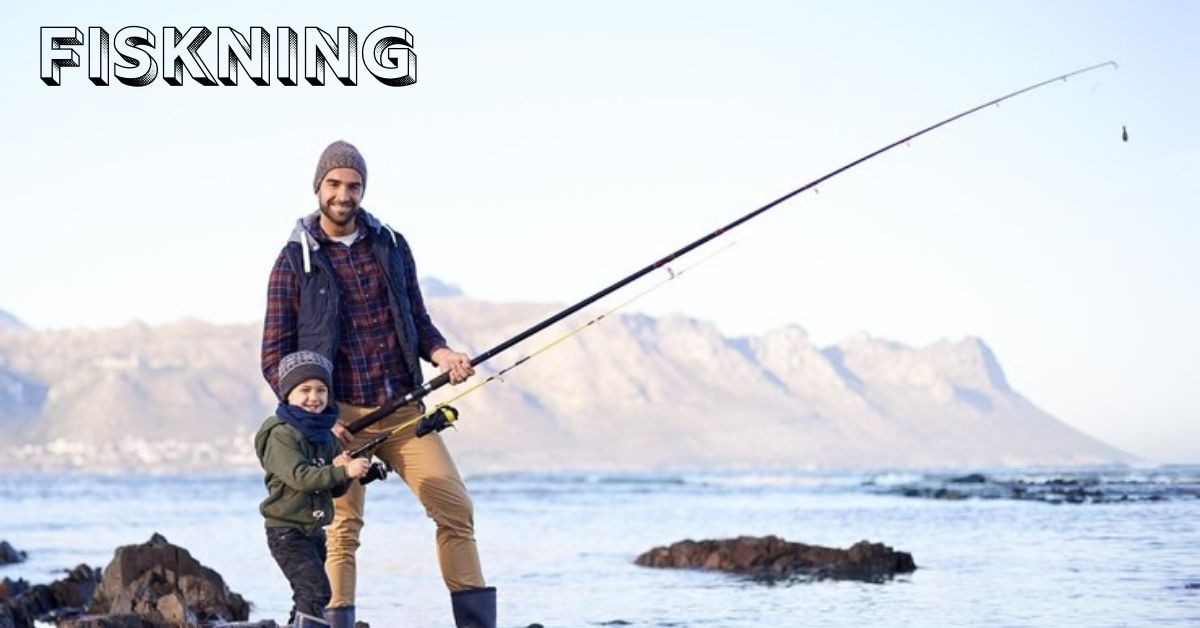Fiskning, or fishing, is a beloved pastime that combines relaxation, skill, and adventure. It’s an activity that brings people closer to nature and provides a sense of accomplishment with each catch. Whether you’re fishing in a quiet lake, a bustling river, or the vast ocean, fiskning offers endless opportunities for enjoyment and learning.
History of Fiskning
Fiskning has been an essential part of human life for thousands of years. Early humans relied on fishing as a primary source of food, using simple tools like spears and nets. As civilizations developed, so did fishing techniques and equipment. The invention of the fishing rod and reel revolutionized the way people fished, making it more efficient and enjoyable. Today, fiskning continues to evolve with advancements in technology, offering even more ways to experience this timeless activity.
Types of Fiskning
Fiskning can be categorized into several types, each with its unique appeal. Recreational fiskning is a popular way to relax and enjoy the outdoors. Many people fish for fun, often practicing catch-and-release to preserve fish populations. Commercial fiskning is a large-scale industry that supplies seafood to markets worldwide. This type of fishing involves extensive equipment and large vessels. Subsistence fiskning is practiced by communities that rely on fish as a primary food source. It involves traditional methods passed down through generations and is crucial for survival in many regions.
Popular Fiskning Methods
There are various methods of fiskning, each suited to different environments and fish species. Angling is the most common method, involving a rod, reel, line, and hook. It’s versatile and can be used in both freshwater and saltwater. Fly fishing is an artful technique that uses lightweight lures called flies to mimic insects. This method requires skill in casting and presenting the fly to entice fish. Ice fishing is done in frozen lakes and rivers, where anglers drill holes in the ice to fish in the cold waters below. Spearfishing involves hunting fish with a spear or spear gun and requires precision and patience.
Essential Fiskning Gear
Having the right gear is essential for a successful fishing experience. The rod and reel are the primary tools, and they come in various types and sizes to suit different fishing methods. Lines and hooks are also important, with different strengths and sizes available for targeting various fish species. Baits and lures are used to attract fish, with natural baits like worms and artificial lures like spinners being popular choices. Proper clothing and accessories, such as waterproof jackets and tackle boxes, enhance the fishing experience and ensure comfort and convenience.
Best Locations for Fiskning
Fiskning can be enjoyed in numerous locations, each offering unique opportunities. Freshwater fishing spots like lakes, rivers, and streams are abundant and accessible. Popular freshwater destinations include the Great Lakes in the United States and the rivers of Scandinavia. Saltwater fishing is often done in oceans and seas, with famous spots like the Florida Keys, the Great Barrier Reef, and the Maldives being renowned for their rich marine life. For a truly unforgettable experience, top fishing destinations worldwide include Alaska, New Zealand, and Norway, offering adventure and the chance to catch trophy fish.
Fiskning Techniques
Successful fishing often depends on the techniques used. Casting techniques vary, with overhead casts, sidearm casts, and underhand casts being common methods. Each technique has its own application, depending on the environment and target fish. Retrieval techniques involve bringing in the line in different ways to attract fish. Slow and steady retrieves, jerky movements, and fast retrieves can all be effective. Trolling involves dragging a baited line behind a moving boat, a method popular in both freshwater and saltwater environments.
Fiskning Seasons and Weather Conditions
Fish behavior changes with the seasons, and understanding these patterns can increase your chances of success. Spring and fall are generally ideal times for fishing, as many fish species are more active. Weather conditions also play a significant role. Wind, rain, and temperature can affect fish activity, and knowing how to adapt to these conditions is crucial. For example, fishing during overcast days can often yield better results, as fish are more likely to be near the surface.
Fiskning Safety Tips
Safety should always be a priority when fishing. Personal safety involves wearing life jackets, especially when fishing from a boat, and informing someone of your plans before heading out. It’s also important to be prepared for emergencies by carrying a first aid kit and knowing basic water safety. Environmental safety is equally important. Follow local regulations, practice catch-and-release when appropriate, and minimize your impact on the environment to ensure sustainable fishing for future generations.
Conservation and Ethical Fiskning
Conservation is vital for maintaining healthy fish populations and ecosystems. Support conservation efforts by following fishing regulations, participating in clean-up activities, and advocating for sustainable practices. Ethical fishing involves fair play and respect for the environment. Always follow local laws, respect catch limits, and ensure the welfare of the fish you catch. Practicing ethical fishing helps preserve the natural beauty and biodiversity of our water bodies.
Fiskning Regulations and Licenses
Different regions have specific laws governing fishing activities. It’s essential to familiarize yourself with these regulations to avoid legal issues. Most places require a fishing license, which is easy to obtain and ensures that fishing activities are regulated and monitored. Licenses also contribute to conservation efforts by funding fishery management and research. Always check local requirements before heading out to fish and ensure you have the necessary permits.
Health Benefits of Fiskning
Fiskning offers numerous health benefits, both physical and mental. Physically, fishing involves various forms of exercise, from casting and reeling to walking along the shore or wading in water. These activities can improve cardiovascular health, muscle tone, and overall fitness. Mentally, fishing provides a peaceful and meditative experience. The tranquility of nature and the rhythmic action of fishing can reduce stress and anxiety, promoting mental well-being. It’s an excellent way to disconnect from the hectic pace of modern life and reconnect with nature.
Fiskning for Beginners
Getting started with fiskning is simple and rewarding. Basic gear, such as a rod, reel, line, hooks, and bait, is all you need to begin. Start by learning the basics of casting and handling your equipment. Patience is key, as fishing often requires waiting for the right moment. Learn from experienced fishers, join local fishing clubs, and take advantage of online resources and guides. Remember, every fishing trip is a learning experience, and the more you practice, the better you’ll become.
Fiskning Community and Culture
Fiskning is more than just an individual activity; it’s a social experience that brings people together. Many anglers form strong bonds with fellow fishers, sharing tips, stories, and experiences. Fishing tournaments and events are popular worldwide, offering opportunities to compete, learn, and celebrate the art of fishing. These events foster a sense of community and camaraderie among participants. Whether fishing with family, friends, or new acquaintances, the social aspect of fiskning is a significant part of its appeal.
Conclusion
Fiskning is a timeless and versatile activity that offers something for everyone. Whether you’re seeking relaxation, adventure, or a way to connect with nature, fishing provides endless opportunities for enjoyment and learning. With the right gear, knowledge, and techniques, you can embark on your fishing journey and discover the joys of fiskning. So grab your rod, head to the nearest water body, and start your fishing adventure today.
FAQs
What is the best time of year to go fishing
The best time varies by location and fish species but spring and fall are generally ideal
Do I need a license to fish
Yes most regions require a fishing license Check local regulations for details
What type of bait should I use
The choice of bait depends on the fish species Worms minnows and artificial lures are common options
Can I fish in any body of water
Not all waters are open to fishing Always check for restricted areas and follow local rules
How can I learn more about fishing techniques
Joining a local fishing club taking classes and reading fishing guides are excellent ways.











